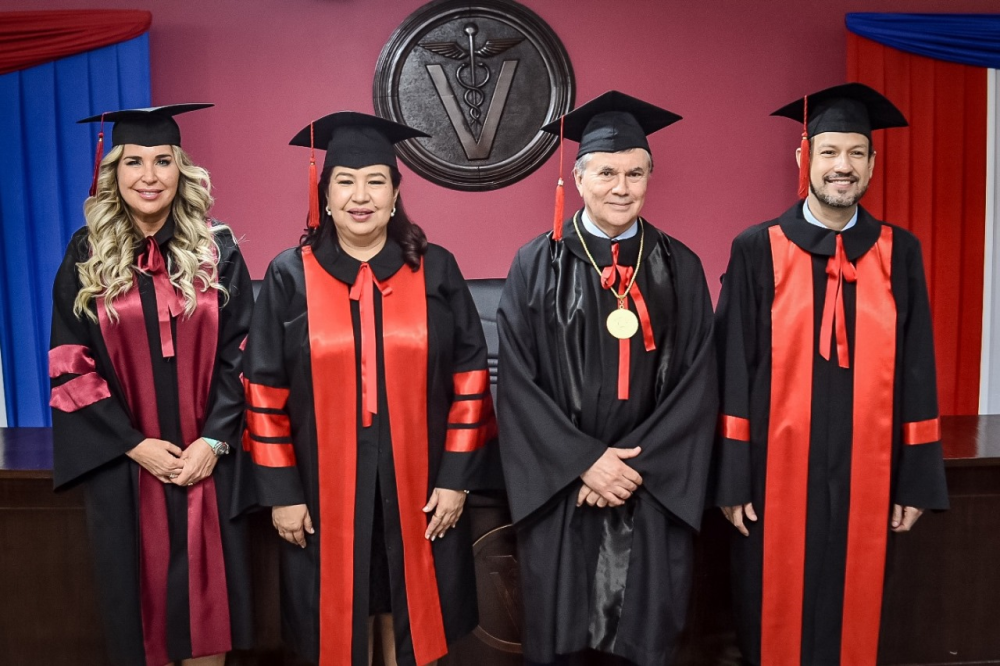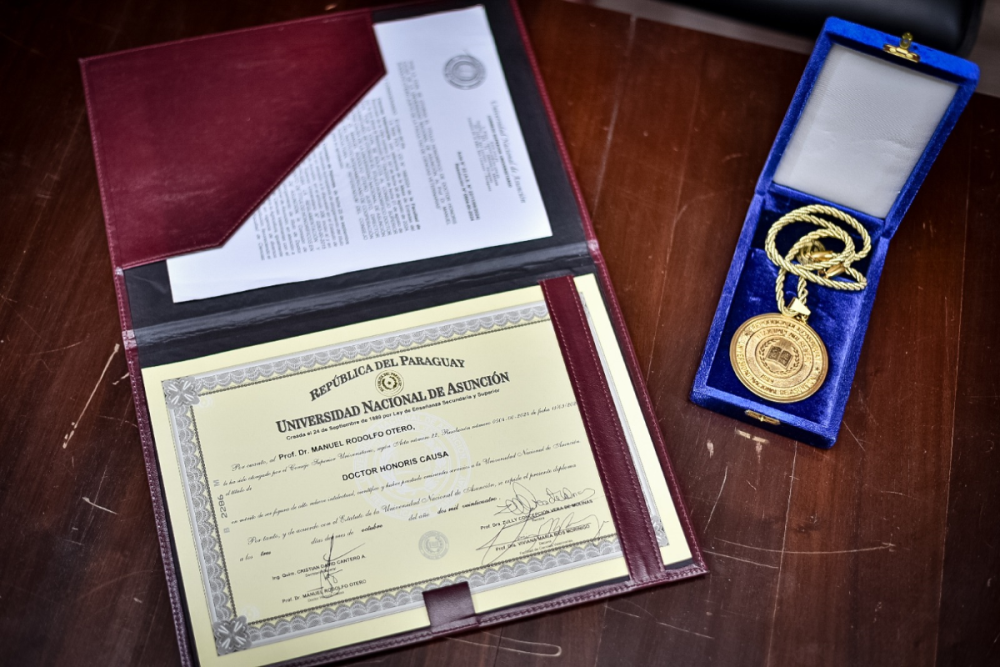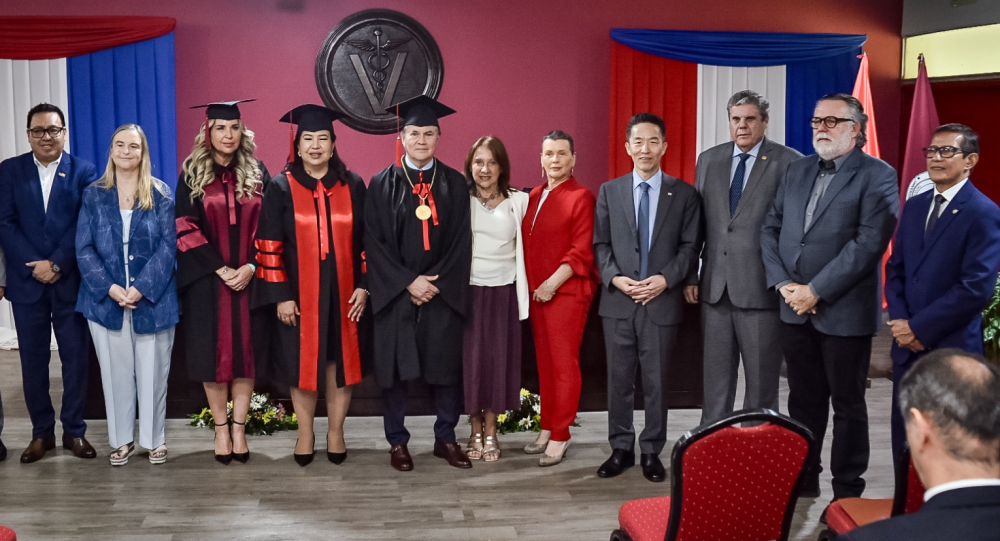IICA Director General receives honorary doctorate from the Universidad Nacional de Asunción (UNA) for “invaluable” contributions to agriculture in the region

Asunción, Paraguay, 24 October 2024 (IICA). The Director General of the Inter-American Institute for Cooperation on Agriculture (IICA), Manuel Otero, received an honorary doctorate from the Universidad Nacional de Asunción (UNA) at a ceremony in the Paraguayan capital attended by a large number of representatives of Paraguay’s agriculture sector.
The Argentine veterinarian received the award, which was presented to him by UNA Rector Zully Vera, for his “invaluable contributions to agricultural development in the region” at a ceremony held in the University’s library, before an audience of government representatives and senior officials from academia and local agricultural institutions.
At the event, the Dean of the Faculty of Veterinary Sciences (FCV), Viviana Ríos, referred to Otero’s extensive career, which began in the 1980s when he served as his country’s agricultural attaché at the Argentine Embassy in Washington. He then joined IICA, the organization with which he has worked in virtually every country of the Americas.
“Today, we honor the life and work of a distinguished figure. With this act, the academic community officially, and at the highest level, recognizes the contribution that the recipient of this honor has made in specific areas and to the construction and dissemination of knowledge and the promotion of human values,” said the Dean of the FCV.
The attendees at the event included deputy ministers Rossana Carolina Ayala Torres and Marcelo Andrés González Ferreira, from Paraguay’s Ministry of Agriculture and Livestock; ambassadors of Latin American and Asian countries; the UN Resident Coordinator in Paraguay, Igor Garafulic; livestock entrepreneur and IICA Goodwill Ambassador, Maris Llorens; and the OAS Representative in Paraguay, Pablo Sandino Martínez Cardozo.

Otero was accompanied at the ceremony by IICA’s Representative in Paraguay, Gabriel Rodríguez, and his wife, architect Amanda Fernández. After receiving his honorary doctorate from Rector Veras, the Director General greeted the audience in Guaraní, thanked the UNA for the accolade, and attributed the success of his administration at IICA “to the collaborative, dedicated work of professionals from different countries whom I have had the privilege of leading for seven years.”
Otero also expressed his thoughts on agriculture and its links with the global agenda, and the role of knowledge, science and innovation.
“It is essential that we acknowledge the role of universities in the training of human resources and new and renewed leaders for agricultural and rural development in our region,” he remarked.
“We need to rethink agriculture from an innovative, sustainable perspective and place farmers at the heart of all our efforts, a new paradigm that offers great opportunities, but also unprecedented challenges, which we must address with a vision for the future,” he added.
The challenges facing Paraguay
The IICA Director General also referred to the situation of Paraguay, an emerging agricultural powerhouse, in the new context.
Otero believes the country is uniquely equipped to respond to the inevitable growth of the global demand for food, as the significant transformations it has undergone in recent years have catapulted it into the role of an increasingly important player on the global agrifood stage.

The implementation of advanced biotechnology and the adoption of sustainable agricultural practices have significantly boosted the production of cereals and oilseeds, such as corn and soybeans, making Paraguay an important producer and exporter, a development that has strengthened the national economy.
“The synergy between new genetic materials and regenerative agriculture methods has allowed us to increase productivity while preserving natural resources, establishing a model for sustainable agricultural development,” Otero explained, also pointing out that Paraguay is among the world’s top 10 exporters of meat, recognized for its high quality and food safety standards.
The country is also making progress with the production of rice and wheat, of which it is now a net exporter.
“The present and future challenge for Paraguay lies in continuing to increase agricultural production, while optimizing the use of resources and strengthening sustainability. The bioeconomy emerges as a key tool for combining productivity with environmental preservation, thus transforming rural areas and their territories into epicenters of innovation and progress. It is imperative to improve the living conditions of small farmers, encourage the active inclusion of young people and women in the sector, and add value to export products,” he concluded.
More information:
Institutional Communication Division.
comunicacion.institucional@iica.int